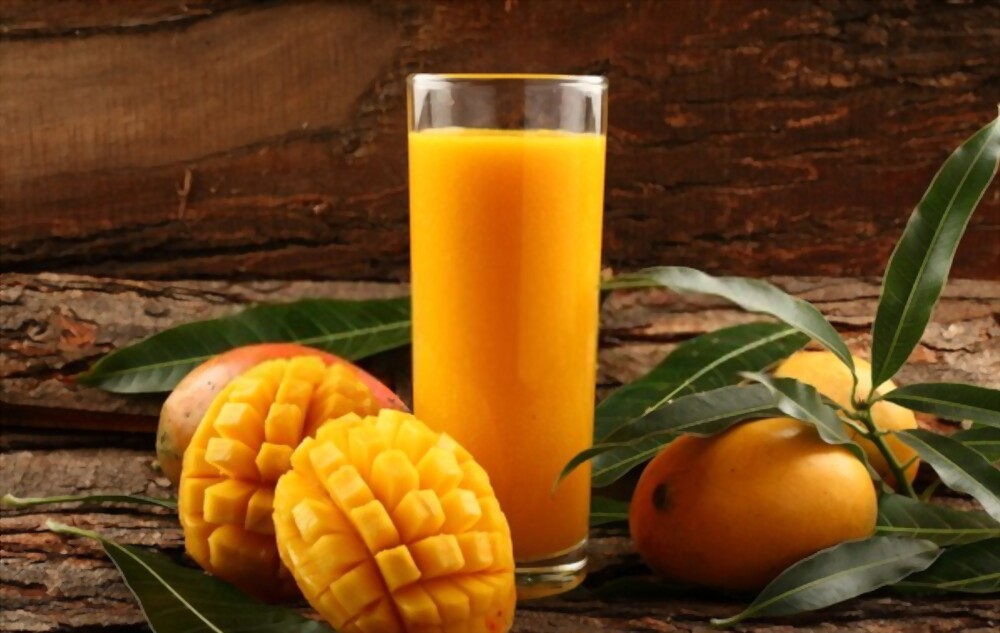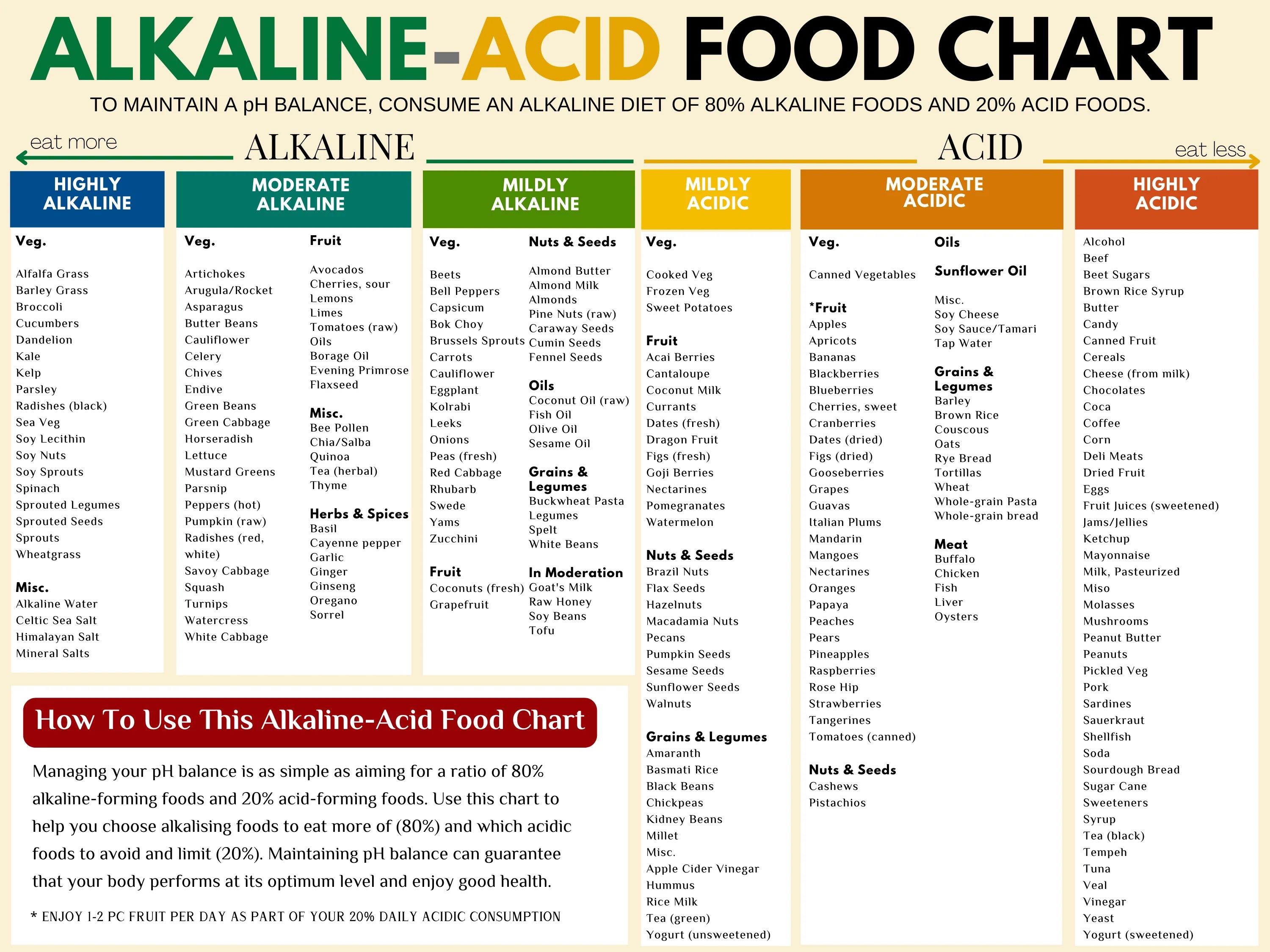Are Mangoes Acidic Or Alkaline? Here’s What You Need To Know
Are mangoes acidic or alkaline? Uncover the facts about mangoes’ pH and learn which varieties may help balance your diet. Get expert insights here!
Author:Michael RachalReviewer:Finn WildeJul 08, 202516.4K Shares349.9K Views

Mangoes, with their vibrant sweetness and nutrient-rich profile, are a tropical delight loved worldwide. Yet, beyond their delicious taste, questions arise about their acidity or alkalinity-an important factor for anyone managing diet sensitivities or aiming to balance their intake of acidic and alkaline foods.
Understanding mangoes’ impact on the body’s pH offers valuable insights into how this fruit can be enjoyed while maintaining dietary harmony.
Below, you’ll find a complete look at mangoes’ acidity levels, how they interact with body pH, their nutritional benefits, and practical ways to incorporate them into a balanced diet.
Quick Facts
- Are Mangoes Acidic or Alkaline?Mangoes are acidic but metabolize to an alkalizing effect in the body.
- Typical pH Range: Between 4.0 and 6.0, varying with ripeness.
- Best for Acid Reflux?Ripe, lower-acid varieties like Ataulfo or Honey mangoes tend to be gentler on the stomach.
The History And Cultural Significance Of Mangoes
The mango (Mangifera indica) has a fascinating history that dates back thousands of years, originating in the tropical and subtropical climates of South Asia.
Archaeological evidence suggests mangoes were cultivated in India as early as 4,000 years ago, where they became an integral part of local diets and cultural rituals. In Indian culture, mangoes are often called the “king of fruits,” symbolizing fertility, prosperity, and abundance.
Mangoes spread across Southeast Asia through trade routes, eventually reaching the Middle East, Africa, and the Americas through explorers and traders.
Portuguese explorers are credited with introducing mangoes to the African continent in the 16th century, while Spanish and Portuguese colonizers brought them to the Caribbean and South America.
By the 19th century, mangoes were introduced to the United States, with Florida becoming a key mango-growing region.
Today, mangoes are cultivated worldwide in various tropical and subtropical regions, with countless varieties and hybrids developed over centuries to suit different climates and tastes. This journey reflects the mango's remarkable adaptability and its deep-rooted significance in cultures around the world.
Understanding Acidity And Alkalinity In Foods
Acidity and alkalinity in foods are measured on the pH scale, which ranges from 0 to 14. A pH below 7 indicates acidity, while values above 7 are alkaline, with 7 being neutral. Foods can have either an acidic or alkaline effect on the body based on their pH level and how they metabolize post-consumption.
A variety of factors affect a food’s pH level:
- Organic Acids: Many fruits, including mangoes, contain organic acids like citric, malic, and tartaric acids, contributing to their acidic pH.
- Mineral Content: Alkaline minerals, such as potassium and magnesium, can help buffer acidity.
- Ripeness: As fruits ripen, they often become less acidic due to increased sugar content.
Are Mangoes Acidic Or Alkaline?
Mangoes typically have a pH between 4.0 and 6.0, making them mildly acidic. However, their effect on the body can vary based on ripeness, variety, and other factors. Mangoes contain organic acids, such as citric and malic acids, which contribute to their natural acidity and tangy flavor.
Ripe mangoes are usually less acidic than unripe ones, as the sugar content increases during ripening, balancing out their tartness.
Factors Affecting Mango Acidity:
- Ripeness: Riper mangoes tend to be less acidic.
- Mineral Content: Potassium and magnesium in mangoes buffer the acidic effects.
- Variety: Mango types vary in acidity, as seen in Alphonso and Kent varieties.
Mini FAQ
Can mangoes help balance body pH?
Yes, thanks to their alkaline minerals, mangoes may help balance pH post-digestion despite their initial acidity.
The Impact Of Mango Variety And Ripeness On Acidity
Not all mangoes are created equal when it comes to acidity. Several factors, including variety and ripeness, can significantly influence a mango’s pH:
| Mango Variety | Acidity Level (pH) & Description |
| Alphonso | 4.8 to 5 - Known for a sweet, mild tartness |
| Kent | 4.0 - Offers a tart, citrusy flavor |
| Ataulfo | 5.0 - Sweet and creamy, low in acidity |
| Tommy Atkins | 4.5 - Bold flavor with a touch of tart |
| Keitt | 5.2 - Mellow sweetness, gentle acidity |
Nutritional Benefits Of Mangoes And Their Effect On Body PH
Mangoes offer an impressive array of nutrients that contribute to overall health and wellness. Here are some key nutritional highlights:
- Vitamin C: Mangoes are rich in Vitamin C, which supports immunity, skin health, and cellular repair.
- Vitamin A: High in beta-carotene, mangoes promote eye health, support cellular growth, and aid in immune function.
- Fiber: The fibercontent in mangoes supports digestion, helping maintain gut health and regularity.
- Antioxidants: Mangoes contain antioxidantslike quercetin and astragalin, which help protect cells from oxidative stress.
- Alkaline Minerals: With minerals such as potassium, magnesium, and calcium, mangoes help buffer the body's acidity, potentially aiding in balancing pH levels.
Health Considerations For Eating Mangoes
While mangoes are generally safe and nutritious, they may require moderation for certain individuals, especially those with acid sensitivities. Here are some tips to consider:
- For Acid Reflux and GERD: Ripe mangoes tend to be less acidic and can be easier on the stomach for individuals prone to acid reflux. Eating mangoes in moderation and avoiding other acidic foods alongside them may reduce discomfort.
- Benefits of Acidity in Mangoes: Although mildly acidic, mangoes support digestion by stimulating digestive enzymes that aid nutrient absorption.
- Balanced Consumption: Combining mangoes with alkaline foods, like leafy greens or almonds, can help create a balanced pH meal, reducing acidity’s potential impact on sensitive stomachs.
These tips can make mangoes a safe, enjoyable part of the diet for those with specific health concerns.
How To Include Mangoes In A Balanced Diet
Incorporating mangoes into a balanced diet is easy with a little creativity. Here are some practical tips and delicious ideas to make the most of mangoes while supporting dietary balance:
- Choose the Right Mangoes: Opt for varieties with lower acidity, like Ataulfo or Honey, especially if you’re sensitive to acidity. When purchasing, look for mangoes that are slightly soft to the touch and give off a sweet aroma, indicating ripeness.
- Pairing with Alkaline Foods: Pairing mangoes with alkaline-rich foods can balance out the acidity. Consider adding mango to a salad with leafy greens, almonds, or avocado for a meal that’s easy on the stomach.
- Storage Tips: Store unripe mangoes at room temperature until they reach desired ripeness, then refrigerate to slow further ripening. This preserves sweetness and minimizes acidity.
Recipe Ideas For Balanced Consumption
- Mango Pineapple Salsa: Mix diced mango, pineapple, tomatoes, cilantro, and a splash of lime. Perfect as a topping for tacos or grilled fish.
- Tropical Green Smoothie: Blend ripe mango with spinach, avocado, and coconut water for a refreshing, alkalizing drink.
- Mango & Quinoa Salad: Combine diced mango with cooked quinoa, cucumber, pomegranate seeds, and a light lime dressing for a nutrient-packed lunch.
- Grilled Mango with Coconut Cream: Brush mango slices with a bit of coconut oil, grill until lightly caramelized, and serve with a dollop of coconut cream. This warm, sweet treat is low on acidity and high on flavor.
FAQs About Mangoes, Acidity, And Alkalinity
What Is The PH Of Mangoes?
Mangoes generally have a pH ranging from 4.0 to 6.0, making them mildly acidic. However, their effect on the body can be alkalizing due to their mineral content.
Can Mangoes Help Balance Body PH?
Yes, mangoes contain alkaline minerals such as potassium and magnesium, which help buffer the acid load from other foods, potentially supporting a balanced body pH.
Are Dried Mangoes More Acidic Than Fresh Mangoes?
Dried mangoes may have a concentrated acidity due to dehydration but generally retain a similar metabolic effect as fresh mangoes. They’re nutritious but should be consumed in moderation due to higher sugar concentration.
Which Acids Are Found In Mangoes?
Mangoes contain natural acids like citric acid, malic acid, and a touch of tartaric acid, which contribute to their flavor and pH.
Are Mangoes Good For Acid Reflux?
Ripe mangoes, with their lower acidity, are often tolerated by those with acid reflux when consumed in small portions. Pairing mangoes with other alkaline foods can further reduce acidity’s impact.
Conclusion
Mangoes are a versatile fruit that brings a unique blend of mild acidity and a wealth of nutritional benefits to the table. With high levels of vitamins, fiber, and antioxidants, mangoes offer support for immunity, skin health, and digestion.
While naturally acidic, mangoes’ impact on the body’s pH is often neutral to alkaline after digestion, making them suitable for a wide range of diets.
By choosing the right mango variety, balancing them with alkaline foods, and enjoying them in moderation, mangoes can be a satisfying and health-boosting addition to a balanced diet. Embrace their tropical sweetness and enjoy their many health benefits in your daily meals.
Jump to
Quick Facts
The History And Cultural Significance Of Mangoes
Understanding Acidity And Alkalinity In Foods
Are Mangoes Acidic Or Alkaline?
The Impact Of Mango Variety And Ripeness On Acidity
Nutritional Benefits Of Mangoes And Their Effect On Body PH
Health Considerations For Eating Mangoes
How To Include Mangoes In A Balanced Diet
FAQs About Mangoes, Acidity, And Alkalinity
Conclusion

Michael Rachal
Author
Michael Rachal believes that luxury lies in the details. With over 20 years of experience in the luxury travel industry, he has crafted hundreds of bespoke itineraries for clients seeking personalized, unforgettable experiences.
Whether guiding clients through private cultural tours or curating culinary journeys with world-renowned chefs, Michael ensures that each trip is tailored to perfection.
His ability to anticipate needs and exceed expectations has earned him a reputation as a leading expert in luxury travel.

Finn Wilde
Reviewer
For Finn Wilde, the wilderness is more than just a destination - it’s a way of life. Over the past decade, he has led multiple expeditions in some of the world’s most remote regions, from the icy fjords of Greenland to the rugged trails of Patagonia.
Finn emphasizes sustainability in all of his adventures, helping participants connect with nature while promoting responsible exploration. His expeditions inspire individuals to explore the great outdoors while fostering a deep respect for the environment.
Latest Articles
Popular Articles


